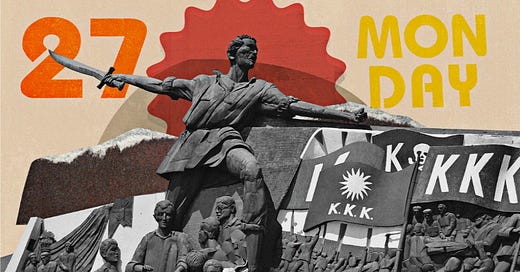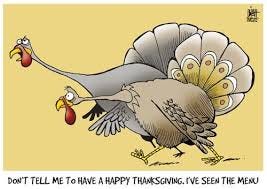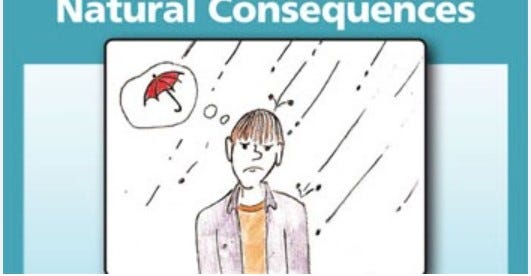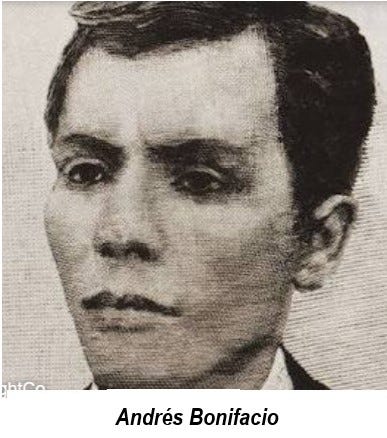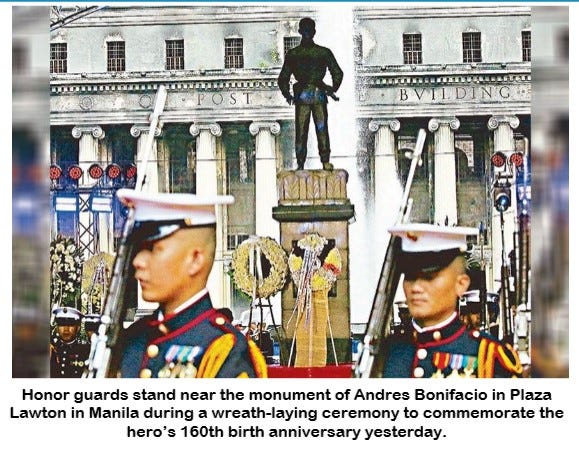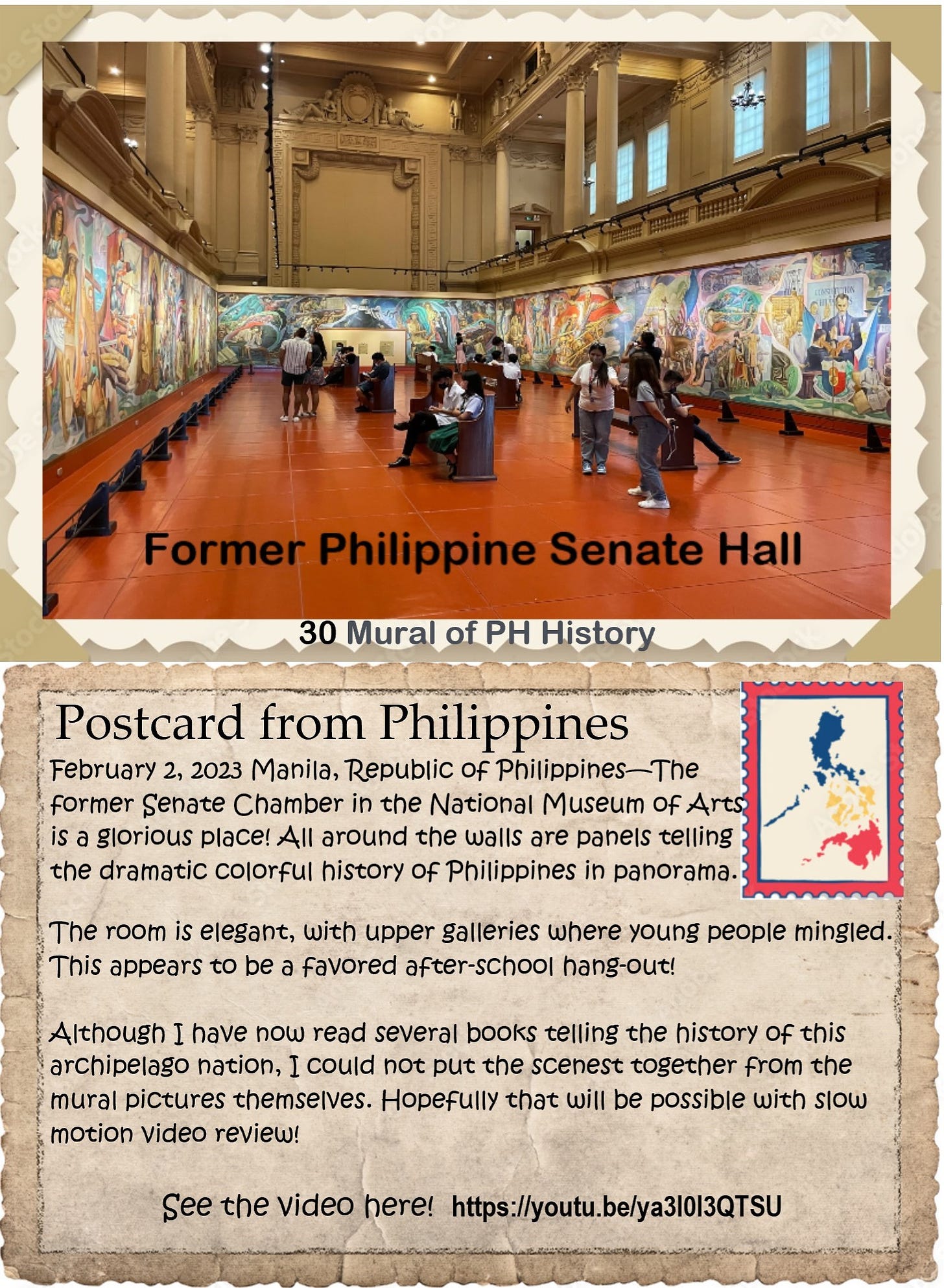American Thanksgiving was just another Thursday, (November 23), here in Philippines this year; the first time I have not celebrated it in my life, but I have been so busy, eating so well, and life is so good here that I can’t say I missed it. Then, on Sunday I learned that Monday, November 27 was a Philippines Holiday--Bonifacio Day. This day of celebration has a long history recognizing the man who many say was really the first president of Philippines.
Turkey is a Traditional Part of Many USA
Thanksgiving Meals
Exact dates of PH National Holidays are declared at the end of each previous year by the President. Normally held on November 30, Bonifacio Day was moved ahead three days to the 27th for the first time, in 2023, by President Ferdinand Marcos, Jr., to avail Filipinos of a three-day weekend--the Monday nearest the date, while November 30 is a working day this year.
.[1] Bonifacio day Information, 2023
In USA Thanksgiving was originally set on the third Thursday of November; it was changed to the fourth Thursday in 1939 by USA President Franklin Roosevelt in order to lengthen the holiday shopping season.
Bonifacio Day in PH
According to PH website Spot.ph: On November 9, 2022, President Ferdinand R. Marcos, Jr. determined: there is a need to adjust these holidays according to the principle of holiday economics wherein a longer weekend will help encourage domestic travel and increase tourism expenditures in the country.
To encourage domestic travel, not to encourage consumerism!
The True USA Thanksgiving
American kids in public education learn that Thanksgiving was celebrated in New England by the Pilgrims, who were thankful to the Indians for all their help raising food before the winter, so they had a feast and a big party. Elementary school kids draw around their open hands on colored construction paper to create a shape they can add features to--like legs and beaks--and post their turkeys all around the classroom. This is their introduction to what it means to be an American and for many that is as far as it goes for their entire k-12 history-void experience. Social Studies has replaced History as a subject to study in most USA public school curriculums.
But that isn’t the Real Story of Thanksgiving
Anyway
The memoirs of Plymouth governor William Bradford describe the First Thanksgiving as a time of reckoning after two years of failed socialism--when many colonists starved to death. Those who survived had learned through the Law of Natural Consequences some important lessons about human nature and capitalism.
Lessons from A Capitalist Thanksgiving by Jerry Bower:
The members of the Plymouth colony had arrived in the New World with a plan for collective property ownership. Reflecting the current opinion of the aristocratic class in the 1620s, their charter called for farmland to be worked communally and for the harvests to be shared.
Famine came as soon as they ate through their provisions. After famine came plague. Half the colony died. Unlike most socialists, they learned from their mistakes, giving each person a parcel of land to tend to for themselves. The colonists threw off the statist intellectual fashions of their day.
The results were overwhelmingly beneficial. Men worked hard, even though before they had constantly pleaded illness. Fields were not only tilled and planted but also diligently harvested. Colonists traded with the surrounding Indian nation and learned to plant maize, squash and pumpkin and to rotate these crops from year to year. The harvest was bountiful, and new colonists immigrated to the thriving settlement.
[2]Thanksgiving Lessons About the Failures of Socialism and the Success of Private Property and Capitalism, Mark J. Perry, American Enterprise Institute, November 27, 2019
As a proud American I celebrate the good things early settlers did from the time of Christopher Columbus leading to establishment of the freedoms many Americans today take for granted with our Constitution and Bill of Rights.
Revolutionary Supremo President: November 30, 1863 – May 10, 1897
Commemoration of the life of Andrés Bonifacio
Andres Bonifacio y de Castro is known as the Father of the Philippine Revolution for leading the revolt against Spanish rule. He founded the Kataastaasan, Kagalanggalangang Katipunan ng mga Anak ng Bayan, commonly called the Katipunan (KKK), a secret revolutionary society which aimed to liberate Philippines from the Spaniards. By 1894, the society and its operations spread throughout Manila, giving women the chance to join the organization as keepers of important documents.
[3]National Museum of the Philippines
The Philstar.com news site reported that a spokesman for President Marcos, Jr. said each Filipino has an important role to play in ensuring the country’s progress.
“Everyone should join activities that will develop our culture, economy and society now that we are striving to achieve a new Philippines,” the President said in a speech delivered by Executive Secretary Lucas Bersamin at the Bonifacio National Monument in Caloocan City.
“Such a heroism can be seen in modern-day heroes – in the diligence and persistence of Filipino workers; in the unmatched skills of nurses and doctors; in the sincere dedication of teachers; in the heroism of police and soldiers; in the unquestionable sacrifice of OFWs (overseas Filipino workers) – all of them give life and meaning to the progress of our nation,” the Chief Executive said.
This is the kind of sentiment we used to get from great USA presidents who loved our country. John F Kennedy famously said: Ask not what your country can do for you, ask what you can do for your country.
Andrés Bonifacio is commemorated on his birthday. National hero José Rizal is remembered on Rizal Day, the date of his death, because Rizal was executed by his fellow countrymen and not at the hands of foreign colonizers.
Keep reading with a 7-day free trial
Subscribe to DONN’s Observations and Insights to keep reading this post and get 7 days of free access to the full post archives.


